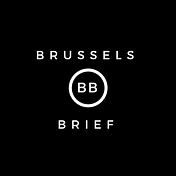Brussels Brief | 19th Edition
2–8 June 2017
Welcome to the 19th edition of Brussels Brief, the EU’s weekly digest delivered to the comfort of your inbox. Brussels Brief is an executive summary so that Eurocrats, policy wonks, trainees, and students alike can stay in the loop with the ins and outs of the international media regarding the EU. 🇪🇺
If you like what you see please forward this to your friends and contacts.📤
⚡️ UPDATE: Check out Brussels Brief in a completely new format on your smartphone. Brussels Brief, adapted for the Snapchat generation… HERE.
See you soon, and meanwhile why not SIGN UP?
The Brussels Brief Team ✉️
Reading Time: 11 min
❝’Not everything in international agreements is fake news.❞
-Jean-Claude Juncker
🔝 FRONT PAGE — Top News this Week
Be calm and vigilant is the new keep calm and carry on. It seems that London mayor’s Sadiq Khan’s words (video) after another terror attack hit the city is fitting advice in a new age of terror in Europe. 8 people died and 48 people were injured as a result of a coordinated attack that hit several areas of London on Saturday night. In a story that is becoming all grimly familiar, vehicles and knives were used by the perpetrators to rage carnage in some of the city’s most populated areas. The attack comes only 12 days after the Manchester one but the forcefulness of the condemnation of both attacks has not waned, with strong words of solidarity coming from the European Commission in wake of the latest attacks to hit the UK. What is sure, however, is that there are more questions than answers surrounding the alleged involvement of ISIS, the low tech use of weapons, connection to previous terrorist attacks and the potential political effects. In any case, the mystery behind the attacks may not be solved for a while as this week, 12 people were arrested in Brussels in relation to the March 2016 attacks in that city and the cousin of the same Brussels bombers has just been charged for masterminding the November 2015 Paris bombings. Whether an interrelated network of terror exists in the UK and whether all attacks are somehow linked is yet to be determined. (Euronews, Haaretz, The Guardian, CNN, European Commission, Firstpost, UPI)
Trump hangover: climate edition. As if the wake of Donald Trump’s visit to Europe didn’t do enough damage to Transatlantic relations, the prospect of catastrophic climate change was sure to ruffle a few feathers. As indicated, the Trump administration made good on its promise to pull the US, the most carbon intensive nation in the world, from the Paris agreement on climate change. The agreement, signed in April 2016 by most of the countries of the world (including North Korea) is the most far reaching international agreement on tackling climate change in cutting carbon emissions. The US President has indicated that if renegotiated the US may come back to the table but that possibility has been strongly refuted by the EU whose leaders have reacted with consternation at the news. The EU has also refuted the possibility of making any extra cuts to compensate for the US withdrawal and is committed to reducing emissions by at least 40% by 2030. Within the EU, there are significant divergences in its member states’ contribution to such a target with Sweden, France and Germany leading the charge with Poland, Italy and Spain letting the side down by looking for loopholes in carbon reduction legislation according to the EU Climate Leader Board. Nevertheless, as Emmanuel Macron promises to ‘make the planet great again’ in an attempt to attract US climate scientists to come to France, Donald Trump insists that the US will be the most environmentally friendly country on Earth outside of the agreement. Alternative facts indeed. (Reuters, EUobserver, The Guardian, World Economic Forum, Vox, Politico Europe)
Less talk, more drones. The years-long speculation of an EU defence mechanism is closer to reality than ever before, as it now has pursestrings. The explosive combination of Brexit and Trump have pushed the EU to go into its own with a 1 billion euro defence fund that will include a shopping list of drones, air to air refuelling planes, cyber defence systems and a whole lot of research and development spending. Hoping to cut costs on duplication, which renders current defence capabilities less effective, Commissioner for Industry Elzbieta Bienkowska also made the argument that Trump is the main catalyst to go ahead with fixing these perennial problems in European defence. The defence fund was unveiled on Wednesday by EU High Commissioner Federica Mogherini and Commission Vice President Jyrki Katainen and the announcement indicates the preference for defence cooperation as more a standard bearer than the troubled eurozone. (The Guardian, Reuters, Politico Europe)
💸 IT’S THE ECONOMY, STUPID — Top Economic, Trade & Innovation News
Exporting realpolitik. Donald Trump’s announcement of US withdrawal from the Paris climate agreement gave further impetus to strengthening EU-China relations, not only in the fight against climate change, but also in trade relations. Nevertheless the newfound love still faces many issues as openly recognised by the Chinese Prime Minister last week; China wants to be deemed a full market economy under WTO rules, gaining better access to European markets, but the EU Commission remains reluctant insisting that China is dumping goods, especially steel, on world markets. However, trade relations are better than ever and driven by German-Chinese mutual dependency on exports, it looks as if ties will deepen in the coming years with the two unlikely partners taking the global leadership mantle. (Reuters, Politico Europe, Al Jazeera, Euractiv)
Monte dei debts. The oldest bank in the world, Italian Monte dei Paschi di Siena, avoided bankruptcy, in the 11th hour. The European Commission approved a plan to inject €8,8 billion, €6,6 billion by the Italian government, in the bank deemed too big to fail (explainer) and potentially causing chaos in Italy. However, the help comes with increased oversight by the ECB and is the first test of the banking union set up after the 2008 financial meltdown — designed to avoid taxpayers bailing out risky bank practices. One of the issues banks face is the lack of safe investments, addressed last week in the Commission’s proposal to set up safe assets in order to get banks out of the negative loop of having to invest in bad domestic bonds. Whether the new scheme will succeed is yet to be seen, and it is questionable if the current measures will solve the problem of risky debt in the Eurozone. (Politico Europe, Bloomberg, Investopedia, New York Times, The Economist)
Bonus: Hyper future From Paris to London in 20 min? Or Helsinki to Tallinn in 8 min? Elon Musk’s Hyperloop is being touted as a new project with the potential to unify Europe and it truly is hard not to be astounded by the potential train of the future, (video) which might be cheaper than other high speed trains. Check out 9 proposed routes in Europe and start planning if your home and workplace need be in the same country. (Hyperloop One, World Economic Forum, Engadget)
🇬🇧 STATE OF THE (DIS)UNION — Brexit Stories
Referenditis: the show must go on . You’re joking, not another one! The Snap, crackle and pop election is upon us and what seemed to be a walk in the park for Theresa May has reliably turned into a two-horse race, thanks in part to a mix of a divided electorate, security concerns, tone deaf manifestos and of a dash of media sensation in the mix. According to the latest polls, the Conservatives still stand to gain a majority of seats but nothing like that initially envisaged suggesting this is a gamble gone wrong for the Prime Minister (video). However, there are plenty reasons to not trust the polls, in the UK in particular, and ‘strong and stable’ could be easily used to describe the rise of Labour leader Jeremy Corbyn from political kryptonite to potential Prime Minister. The prospect of a hard Brexit may have something to do with it and there are those who still hope for a result that could result in no Brexit at all. In an election season where Theresa May has been seen flipping off the EU on the whitecliffs of Dover and not showing up to leaders debates and famous graffiti artist offering bribes it is easy to get caught up in the noise. Therefore, before the result at 11 CET tonight, check out this recap of the essential knowledge (video) and a flashback to a different time with a different female Prime Minister (video). (Al Jazeera, YouGov, The Economist, Politico Europe, Euractiv, The Guardian, Kentonline, Financial Times, BBC Newsnight)
‘Bloody difficult’ Brexit roundup. It seems that the EU has made its choice as to who they want to see on the other side of the table in negotiations, and hope a self-described ‘bloody difficult woman’ is the one to provide a ‘government strong enough to negotiate’. Whatever happens, it seems that Britain will see strength and unity on the side of the EU, whose member states are hell bent on maintaining unity in order to preserve the Union as a whole. The threat of a ‘no deal’ underlines aforementioned concerns and, according to Budget Commissioner Günther Oettinger, the prospect of a no deal between the EU and the UK could relegate its relationship to that of the EU and Uganda. (Reuters, The New European, Politico Europe)
2
Degrees temperature rise prescribed as a limit by the Paris climate deal.
🏢 BRUXELLES MA BELLE — News about the city
Reading in the rain. L’Arbre de Diane, a Brussels collective, has won the Bruocsella Award, a 23,000 euro prize that will help the launch of its ‘Raining Poetry’ project. The initiative consists of placing international poetry (both world-renown and not) in many different languages, across the walls and pavements of the Belgian capital. Where’s the originality? The words will be written in a substance that is only visible when wet (aka for once we can all rejoice in Belgian rainfall). Although not permanent, the poetry is expected to last for several months and will be recorded over time. (The Bulletin)
The silver lining that starts with ‘B’. The idea that Brexit is in some shape or form going to happen is making a grand majority of citizens frustrated, dubious or a bit of both. This is especially the case for those in Brussels, which lives the unexpected reality daily. However, the Belgian capital might have a positive spin to this story. Financial players are growingly finding interest to re-settle on the Continent post Brexit and the likely location might very well mean Brussels. Lloyds, a London-based insurance giant, is leading the movement, having already established its European subsidiary so as to anticipate any potential Brexit repercussions. (Brussels Times)
Public (summer) announcement. The Minister of Public works, Pascal Smet, has announced that the Brussels region will take advantage of the less-crowded summer months to carry out urban planning aimed at facilitating and lightening traffic. The Pentecost weekend saw the start of redevelopment work for the Buyl junction of Boulevard General Jacques. The tram service will be replaced by a shuttle bus and buses originally aimed for the main street will be redirected. From 1 July, the Rogier tunnel will undergo the final works for waterproofing. Most of the work will be completed by 1 September but should you be curious to find out more, click here. (Brussels Times)
✂️ EXTRA — From the Cutting Room Floor
Autocracy: 1 — Democracy: 0 If your are reading this chances are you live in a democracy. That makes you part of a global minority. According to the Economist Intelligence Unit only 49% of the world’s population live in a democratic country and a mere 4,5% resides in a the premium league of “full democracy” but luckily for Europeans 8/10 of the world’s top democracies are found in Europe. But the global trend is not looking good with democracy receding in all parts of the world; in Europe most notably in Eastern Europe. This corresponds with a global drop in freedom according to Freedom House which highlights that many flaws in recent years especially following Brexit have come to the forefront. After Poland and Hungary the October elections in the Czech Republic might make it the next domino to fall to an authoritarian leader. It seems that 2017 will keep being an interesting year to follow after all. (World Economic Forum, Freedom House)
Lest we forget. A mere 70 years ago, Europe faced profound poverty and adversity. While certain European leaders were attempting to re-build a political will, one based on unity after a tragically, divided past, it was perhaps the United States that provided the light at the end of the tunnel. On 5 June, 1947 at Harvard University, Secretary of State, George Marshall, unveiled what was to be known as the Marshall Plan: an American initiative worth $13 billion to help reconstruct Europe. It would be this effort from our transatlantic ally that would provide the support necessary to re-construct the Continent’s infrastructure, on the basis of economic integration and federalism alike. (Voice of America)
💡 OPINION — Top minds muse on the European project
Who needs a European movement anyway?After Marine Le Pen got soundly defeated last month should pro-European grassroots take a break? Though there are reasons to stay hopeful Europeans need to be vigilant writes Utta Tuttlies, co-founder of the Pulse of Europe movement. Trump is still threatening the global order, in Austria a far-right candidate came within grasp of the Presidency and in Hungary Viktor Orban continues to dismantle the rule of law and democratic institutions. Engaged citizens need to continue fighting for a strong and democratic Europe, every day, otherwise we will let the autocratic forces win. Europe has much to offer the future, if we dare fight for it. (Euractiv)
In the future we hope. It was perhaps David Cameron’s 2013 speech announcing a Brexit referendum that paved the way for a clearly divided ideology; one pro-EU, one entirely distrusting of the process claiming it could only lead to failure. It is, after all, theories from International Relations that challenge the EU’s development, arguing that concepts of democracy and the rule of law can only truly blossom from within the boundaries of a sovereign state. However, after a painful and violent past that culminated in two world wars within half a century, the project of the European Union seems to be defying said theories and mechanisms. Perhaps, it is only with confidence for progress made so far and for the potential the model continues to hold, that the European Union model can go on to further develop and evolve. (Peace Palace Library)
Communism no more. What if post-Communist Russia, no longer being constrained by ideology, finally had more capacity for political manoeuvres? A 10-point analysis that analyses why Vladimir Putin has more room for manipulating Russia into a greater sphere of influence than Brezhnev ever had with the USSR. After all, Russia without communism attracts far more businessmen, ones that Putin can more easily bargain with financially. Plus, the country’s sphere of influence is weakening, perhaps with less at stake, it has more to gain. (Euromaidan Press)
🎧 PRESS PLAY — Media Corner
🔊 Podcast of the Week. The contribution of EU immigration to the UK economy. (ESharp!)
🎥 Video(s) of the Week. A recipe for a secrecy cake… (Transparency International EU)
✏️ Cartoon(s) of the Week. Keep Calm, Carry On Trolling, 19th Century USA & Distracted electorate (Cagle.com)
📺 GIF of the Week.





